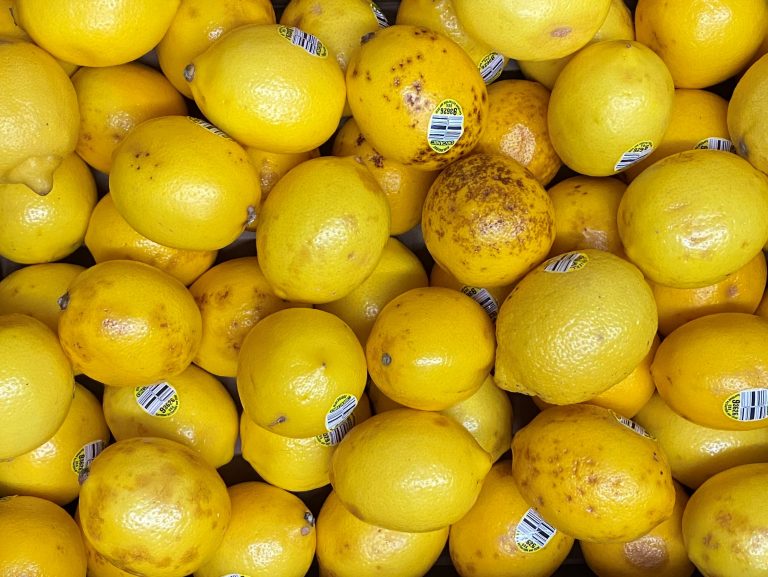One of the most common questions people ask when they are considering switching to organic foods is whether or not the often (but not always) more expensive organic option is healthier. Health is a big factor for consumers when they are choosing what to eat, but if the health benefits of a product are not easily understood it can be harder to justify purchasing one apple over another.
In short, organic foods ARE healthier to consume without the risk of residue from synthetic pesticides, and a greater bounty of nutrients and vitamins. Before diving into the details of these two factors however, there is the topic of price and affordability when it comes to organic produce. While we hope to express the value of choosing organic foods, there is an undeniable reality that choosing to purchase organic can be difficult on an already tight budget. While there are ways to shrink this gap between organic and conventional foods, (a topic we hope to cover in more detail later!) It is our belief that one should balance support of organic and the importance of whole foods rather than skip a proper diet in order to fill your food budget with 100% organic food.
Returning to organic food and health, we turn to the first benefit, the lack of synthetic pesticides. The point is of course very self explanatory… consuming organic food means one can reduce the risk of ingesting residues from chemical pesticides that linger on produce without proper and intense washing techniques (remember that many synthetic chemicals are designed to remain on produce). While chemical residue on food is monitored to remain at “safe” levels for ingestion, these levels are ultimately determined by how much chemical contamination causes acute (immediate) health risks. It has been long suspected that even the smallest traces of chemical pesticides can have adverse and unpredictable effects over long periods of time, with some effects often developing and going unnoticed for years at a time. Because of the highly regulated nature of organic agriculture, synthetic and persistent pesticides are strictly prohibited, and farmers are limited to a careful selection of techniques concerning pest control.
While the lack of synthetic pesticides in organic food is important in and of itself, the real benefit of organic comes in its increased nutritional value. While the difference in nutritional value between organic and conventional foods is hotly debated by some, there is strong evidence that supports the claims that organic food has more nutritional value. A University of Missouri study in 2002 has shown that organic oranges have as much as thirty percent (30%) more Vitamin C in comparison to conventional oranges. An increase in Vitamin C and other vitamins is not the only value of organic foods however. Organic foods have been shown to have increased phytonutrients (fahy-toh-noo-tree-uhnt), which include polyphenols (micronutrients that possess many beneficial traits such as anti-inflammatory benefits or the ability to help fight of diseases) and antioxidants (compounds that inhibit oxidation and the deterioration of cells). These nutrients benefit both the plant and its consumer, as they are produced by the plant in order to combat pests and disease, which then pass onto the consumer and impart similar benefits. These nutrients are increased in organic foods for a few reasons, but the main one relates back to synthetic chemicals, as they often handicap or outright block a plant’s ability to produce these crucial nutrients on their own. On the other hand, organic practices can encourage a plant to produce their own defenses against these pests and disease without the need for chemical farming, by strengthening the soil to be healthier and give crops the environment they need in order to thrive.
The benefits of organic foods do not simply boil down to what they lack in terms of chemical residue, but also in what they have to offer in terms of nutritional benefit. Pfenning’s farms in particular have prided ourselves on creating and delivering foods that offer the best nutritional value possible to those who enjoy our foods… and we wouldn’t choose to deliver exclusively organic produce if it didn’t follow in those values! When you support Pfenning’s farms and other organic systems, you can eat with the peace of mind that your health is not at risk from the effects of harmful practices… while you and your family only stand to benefit from healthier (and tastier) foods!
Sources:
Steve Meyerowitz, “Are Organic Foods More Nutritious?” https://organic.org/are-organic-foods-more-nutritious/
Beyond Pesticides, “Health Benefits of Organic Agriculture.” https://www.beyondpesticides.org/programs/organic-agriculture/why-organic/health-benefits
Previous True Cost Tuesday: What is Organic?
Next True Cost Tuesday: How Organic Benefits the Environment









